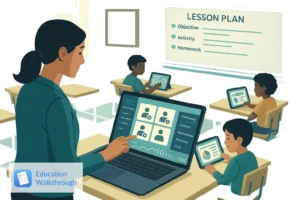California schools are expected to provide quality education for all students. Unfortunately, underserved students often lack access to the same level of resources and support as their peers. This can lead to a significant achievement gap between these students and those who receive more equitable opportunities. Fortunately, there is a solution: leveraging the School Plan for Student Achievement (SPSA) program. In this article, we will explore how California schools can use the SPSA as a tool to meet the needs of underserved students and improve their performance.
What is the SPSA?
The SPSA is a system of accountability that requires states receiving federal funds under Title I (Improving Academic Achievement) to develop specific plans for improving student performance and reducing gaps in academic achievement. These plans must include goals for increasing parent involvement, improving school climate, providing high-quality instruction and interventions, improving school leadership capacity, implementing data-driven decision-making processes, and strengthening family engagement initiatives. By utilizing these resources effectively, California schools can target their efforts toward meeting the needs of underserved students.
Education Walkthrough helps K12 instructional coaches, principals, and district leaders to observe, document, and share immediate feedback with teachers in order to ensure that federally-funded programs are aligned with priorities such as closing achievement gaps between underserved students and their peers. Education Walkthrough’s platform provides quick access to data so that leaders have an accurate understanding of how well programs are working or need improvement. With this information readily available they can assess instructional progress over time; adjust interventions when needed; identify areas where additional funding or resources should be allocated; grow teacher development; measure program impact on improved student outcomes; create reports; track key performance indicators; share best practices across districts; create strategic plans for improvement; maintain compliance with federal regulations; communicate results with stakeholders; and more!
Conclusion
The SPSA provides an invaluable opportunity for California schools to address the needs of underserved students by utilizing federal resources strategically. Education Walkthrough’s platform makes it easier than ever for school leaders to observe classrooms firsthand in order to document program impact on improved student outcomes while maintaining compliance with regulatory requirements. By leveraging these tools effectively, California schools can ensure that all children receive a high-quality education regardless of background or circumstances so they can succeed academically now—and into the future!




